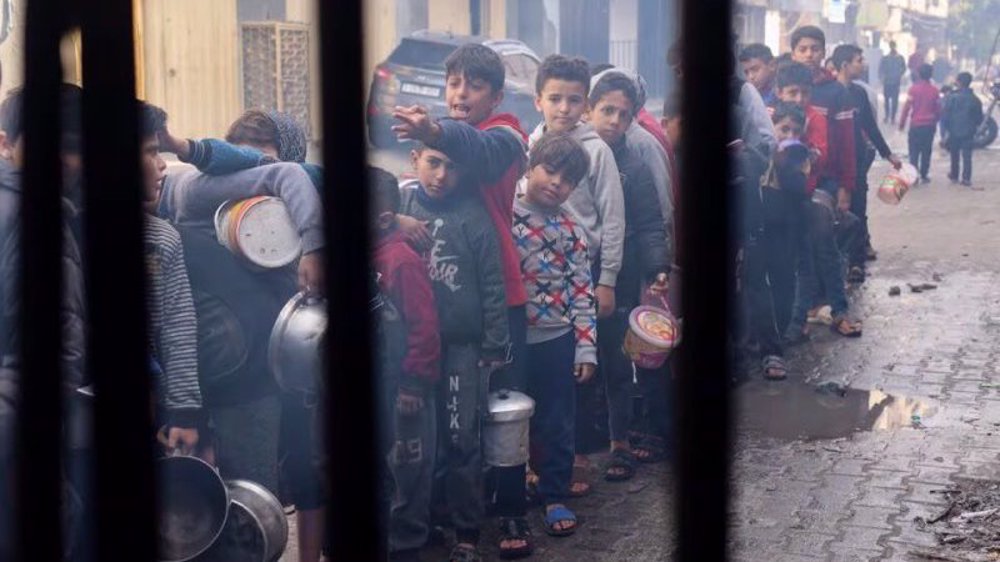The United Nations children’s agency has warned that acute water shortages in the war-torn Gaza, triggered by Israel’s ongoing war, pose deadly risks for children in the Palestinian territory with large-scale disease outbreaks looming.
The UN Children’s Fund (UNICEF) said on Tuesday that recently displaced children in the southern Gaza Strip were accessing only 1.5 to two liters of water each day, which is well below the recommended requirements just for survival.
“The impact of this on children is particularly dramatic because children are also more susceptible to dehydration, diarrhea, disease and malnutrition, all of which can compound to present a threat to their survival,” the UN agency said.
Israel waged the war on Gaza on October 7 after the Palestinian Hamas resistance group carried out the surprise Operation Al-Aqsa Storm against the occupying entity in response to the Israeli regime’s atrocities against Palestinians.
The regime unleashed its war with the stated goal of releasing all of its captives and eliminating Hamas. None of the goals however have been achieved.
Since the start of the US-backed offensive, the Tel Aviv regime has killed at least 19,667 Palestinians, mostly women and children, and injured 52,586 others. Thousands more are also missing and presumed dead under the rubble.
“Access to sufficient amounts of clean water is a matter of life and death, and children in Gaza have barely a drop to drink. Children and their families have to use water from unsafe sources that are highly salinated or polluted. Without safe water, many more children will die from deprivation and disease in the coming days,” said UNICEF Executive Director Catherine Russell.
The Israeli regime, since the onset of the war, has imposed a tight blockade against the densely-populated Gaza Strip, implementing harsh measures to cut electricity, food, water and fuel from entering the enclave.
According to the UN agency, three liters are required daily for survival, and the amount rises to 15 liters of water required for washing and cooking is also counted.
“Concerns of waterborne diseases such as cholera and chronic diarrhea are particularly heightened given the lack of safe water, especially following this week’s rains and flooding,” UNICEF further said.
Figures by the World Health Organization (WHO) show that from November 29 to December 10, cases of diarrhea in Gazan children under five jumped 66 percent to 59,895, and increased by 55 percent for the rest of the population.




